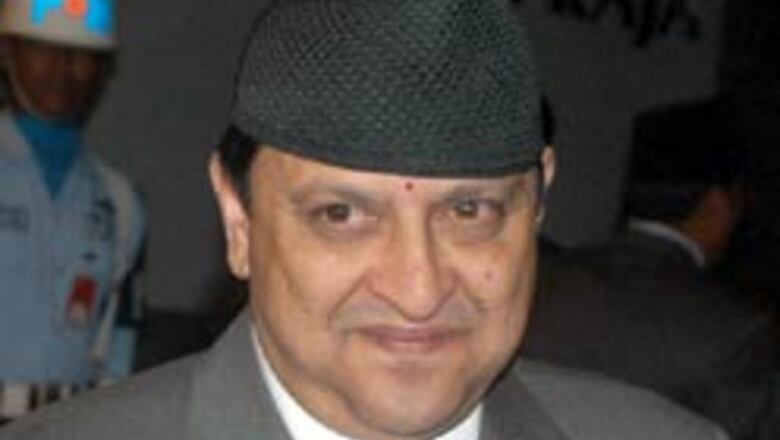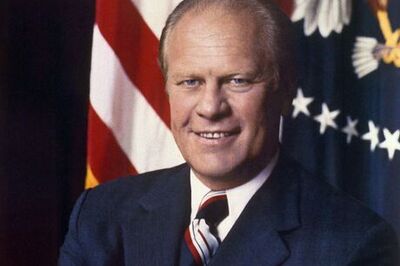
views
Kathmandu: Admitting that his 15-month direct rule failed to achieve the desired goal of reactivating elected bodies, Nepal's King Gyanendra on Monday said he was "compelled" to seize power in 2005 because the then government
"failed" to conduct elections and provide public security.
Owning responsibility for his February 2005 takeover that led to a violent mass uprising forcing him to re-instate Parliament, Gyanendra, in his address to the nation on Nepal's 57th Democracy Day said he was "compelled to seize power as per the people's aspiration to reactivate elected bodies by maintaining law and order."
"I was compelled to take the February 1 step," the King said. "We also should take the moral responsibility of the success or failure of the 15-month period," he said.
In a statement to mark the day, Prime Minister G P Koirala expressed confidence in people's power in maintaining the re-established democracy.
"People, finally, emerge victorious. They once again established the truth that they are the source of all powers," Koirala said.
The King admitted that his direct rule failed to achieve the desired goal as "various obstacles thwarted our resolve to install elected representative bodies."
He reinstated the House of Representatives on April 24, 2006 with the confidence that the nation would forge ahead on the path of national unity and prosperity while ensuring permanent peace and safeguarding multi-party democracy.
The King's statement sparked sharp criticisms from the Maoist leadership. Maoist chairman Prachanda said it was a conspiracy hatched to foil efforts to hold the Constituent Assembly election in June this year.
Nepal's new leadership, which will include former communist rebels, must abide by democratic principles and work toward fulfilling the wishes of the people, Gyanendra said.
Koirala said that the re-established democracy has reached such a height from where no one can snatch it away.
He said that he was commited to holding the constituent assembly election to
rewrite the constitution by mid-June this year.
The welfare of all citizens depended on successful completion of the polls, the Prime Minister said, adding that "only after this will we be able to take Nepal to its set destination."
"In order to consolidate multiparty democracy, elected representative bodies must be installed, taking into consideration, in a mature manner, the grievances, aspirations and sentiments of all the Nepalese to the satisfaction of all," Gyanendra said.
"Nepal is a kaleidoscope of diverse peoples - be they indigenous, dalits or those living in villages, cities, Terai, hills or the mountainous regions," he said, adding "all should bear in mind that Nepal's sovereignty and integrity remains
safeguarded only because all have accepted and abided by this
reality," the King said.
"People alone are the arbitrators of their own destiny and they wish to build a prosperous Nepal through meaningful exercise of multiparty democracy," Gyanendra said.
Prachanda said that the King's "remarks pose a challenge to the eight political parties including the Maoists." Democracy was first established in Nepal on February 18, 1951 by ending the hereditary rule of the Ranas.
"History has handed all of us the responsibility of establishing lasting peace, taking the democratic achievements to people and creating a prosperous Nepal," Koirala said.

















Comments
0 comment